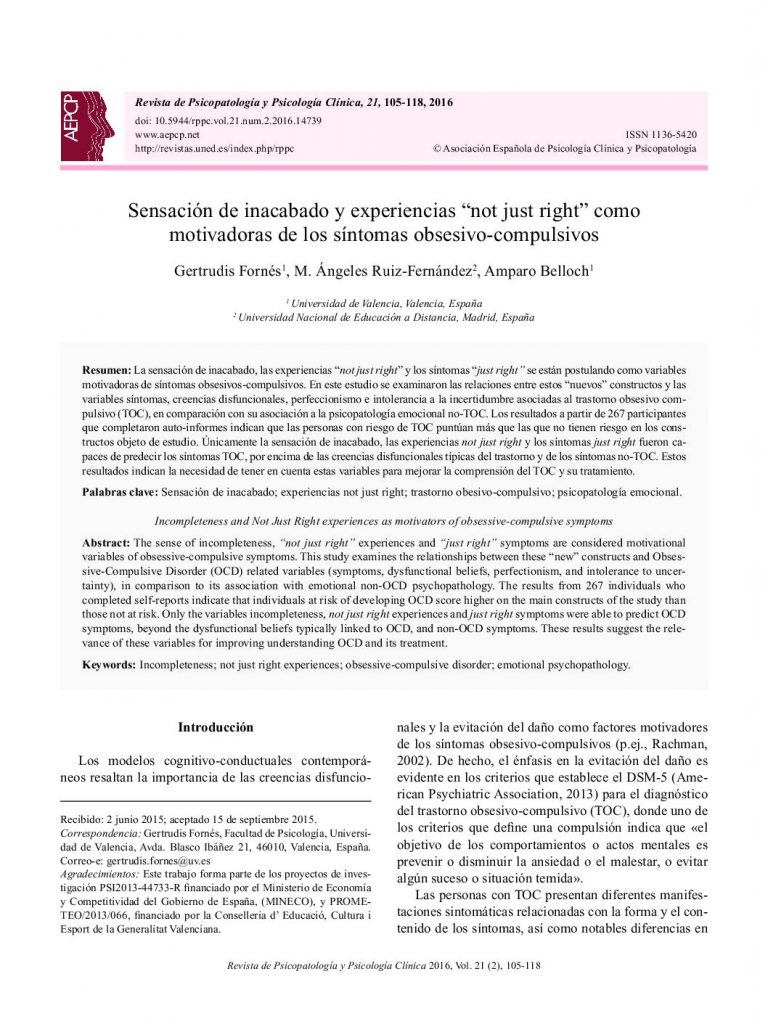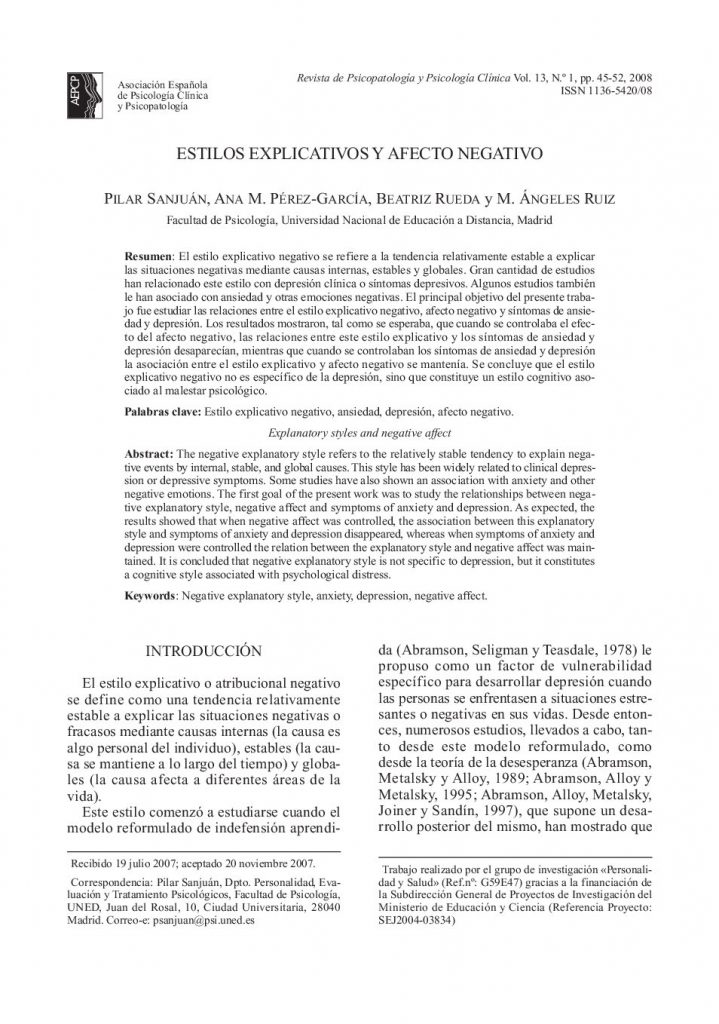Sensación de inacabado y experiencias “not just right” como motivadoras de los síntomas obsesivo-compulsivos.

- Evaluación del bullying como victimización: Estructura, fiabilidad y validez del Cuestionario de Acoso entre Iguales (CAI).
- Body dissatisfaction differences and similarities among people with eating disorders, people with gender dysphoria and university students.
- Sensación de inacabado y experiencias “not just right” como motivadoras de los síntomas obsesivo-compulsivos.
- Funcionamiento del sistema nervioso autónomo y estado de salud en la fibromialgia.
- Burnout y factores estresantes en profesionales sanitarios de las unidades de cuidados intensivos.
- Contribución de la aceptación-rechzo materno y paterno al ajuste psicológico de los hijos: Diferencias entre población clínica y general.
The sense of incompleteness, “not just right” experiences and “just right” symptoms are considered motivational variables of obsessive-compulsive symptoms. This study examines the relationships between these “new” constructs and Obsessive-Compulsive Disorder (OCD) related variables (symptoms, dysfunctional beliefs, perfectionism, and intolerance to uncertainty), in comparison to its association with emotional non-OCD psychopathology. The results from 267 individuals who completed self-reports indicate that individuals at risk of developing OCD score higher on the main constructs of the study than those not at risk. Only the variables incompleteness, not just right experiences and just right symptoms were able to predict OCD symptoms, beyond the dysfunctional beliefs typically linked to OCD, and non-OCD symptoms. These results suggest the relevance of these variables for improving understanding OCD and its treatment.
La sensación de inacabado, las experiencias “not just right” y los síntomas “just right” se están postulando como variables motivadoras de síntomas obsesivos-compulsivos. En este estudio se examinaron las relaciones entre estos “nuevos” constructos y las variables síntomas, creencias disfuncionales, perfeccionismo e intolerancia a la incertidumbre asociadas al Trastorno Obsesivo Compulsivo (TOC), en comparación con su asociación a la psicopatología emocional no-TOC. Los resultados a partir de 267 participantes que completaron auto-informes indican que las personas con riesgo de TOC puntúan más que las que no tienen riesgo en los constructos objeto de estudio. Únicamente la sensación de inacabado, las experiencias not just right y los síntomas just right fueron capaces de predecir los síntomas TOC, por encima de las creencias disfuncionales típicas del trastorno y de los síntomas no-TOC. Estos resultados indican la necesidad de tener en cuenta estas variables para mejorar la comprensión del TOC y su tratamiento.




